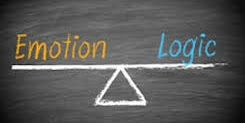1. Personal Leadership or how we organize ourselves
2. Inspiring and Influencing others to get things done
3. In-depth knowledge about our work or business
Let's talk about Personal Leadership or self-organizing.
What is self-organizing or personal leadership?
Self-organizing or personal leadership is about proactively preparing ourselves for the position/ title or the job or task we do."
It is all about how we conduct ourselves, shape our character, attitude, enrich our knowledge and skill for the position.
It is all about personal effectiveness.
It is the foundation for getting things done.
For example,
Suppose you are a functional or business head. In that case, this position demands certain behaviors, knowledge, and skills like being a role model for others on respecting time, and people, expertise in functional or business knowledge, and specific skills to demonstrate. How you prepare yourself for those requirements is about self-organizing or personal leadership.
Why do we need to self-organize from the "Execution Capability" perspective?
1) When you have not organized yourselves, you can not lead others effectively. You can not improve your team's capability without improving your effectiveness
As per the law of organized performance, the ratio of a leader's performance to their team remains constant.
For example, if you measure your performance on a scale of 1~10 and your score is 8, your team score would also be eight or less. Hence ratio is 1:1
You can not change your team's performance score to 10 unless you also improve your score to 10; therefore, the ratio remains constant as per law.
The point is your team's execution capability, or effectiveness depends on your execution capability only.
To get things done, you need to enhance your effectiveness first.
2) You will derail any time during the growth stage if you are not organized.
As said, self-organized is more about disciplining yourself. You will get derailed when you do not maintain the discipline as the job demands.
We might have come across many talented people who derailed their careers not just due to performance alone but lack of personal leadership.
Some of the examples could be ICICI bank Ex women CEO or Satyam computer founder's fall mainly due to governance issues from a business perspective or integrity issues from a personal point of view.
The point is self-organizing is very fundamental for enhancing execution capability. Without that, we cannot inspire or influence others. When you grow up, people look up to you for everything.
Let's talk more about personal leadership next week.

















